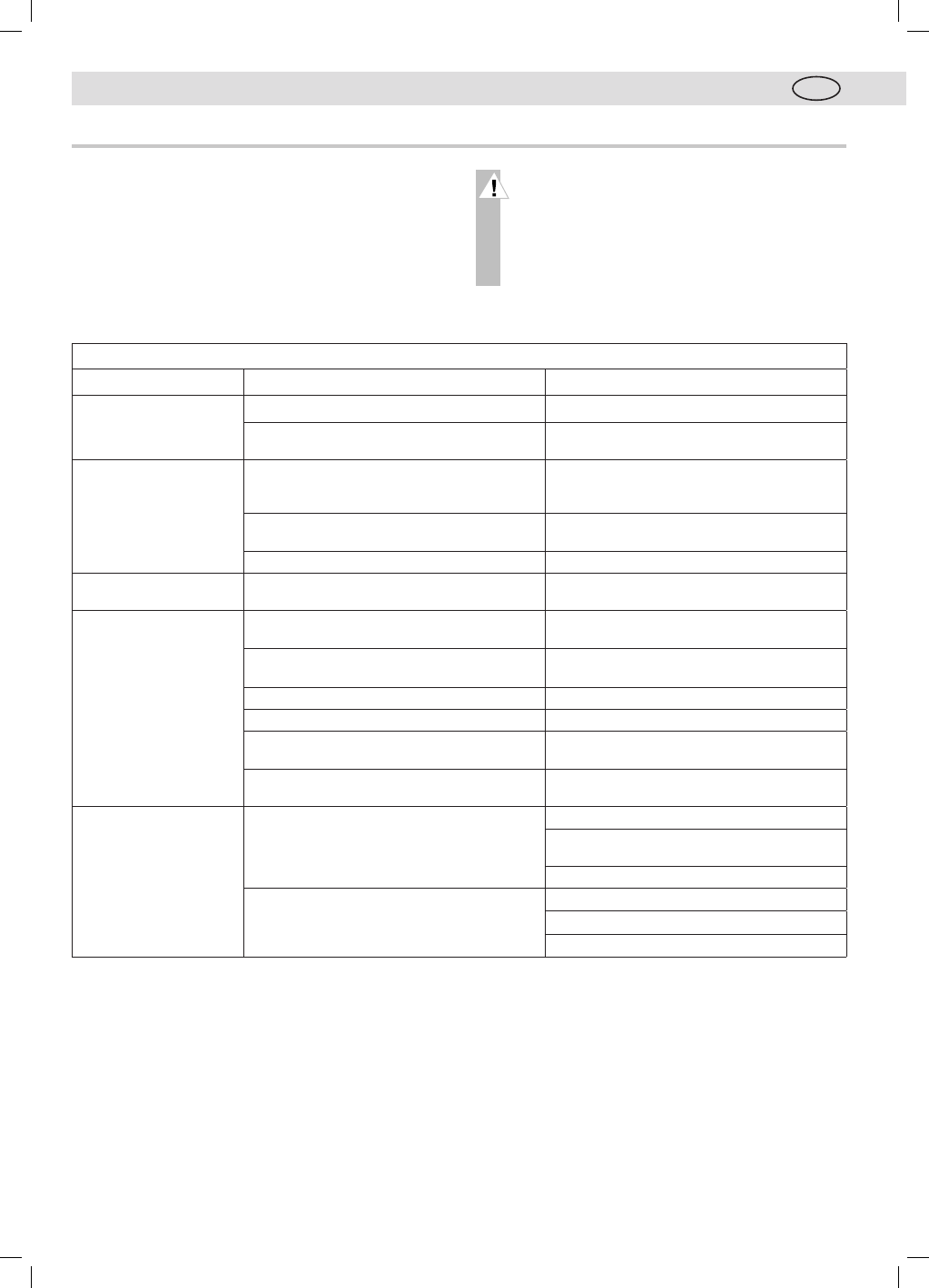If a problem occurs, 13 ie – Silvercrest DTL + 1026 User Manual
Page 13

13
IE
Trouble-shooting table
Problem
Possible cause
Solutions, tips
Compressor and interior
light off.
No current in the wall outlet.
Connect another appliance to check.
Mains plug is not tight.
Make sure that the mains plug has been inserted
properly.
Compressor is not running,
interior light is on.
The required temperature has been reached.
Further cooling is not required. When the inside
temperature goes up, the compressor will switch
on automatically.
New installation.
The appliance needs at least 3 hours for the refrig-
erant to settle.
Ambient temperature too low (less than +16 °C)
Lower the temperature regulator position.
The appliance is cooling too
much.
The temperature of the inner compartment has
been set to too low a cooling level.
Lower the temperature regulator position.
The appliance does not cool
enough.
The wrong temperature has been selected.
Turn the temperature regulator to a higher posi-
tion.
The door is not closed tight or the door seal does
not make proper contact throughout.
See "Checking and cleaning the door seals".
Food is not cooled.
Only put food in that has already cooled down.
Too many products have been put in at once.
Never freeze more than 2.5 kg at a time.
A layer of ice has formed.
Defrost the freezer compartment and check the
door seal.
The ambient temperature is too low or too high
Adjust the ambient temperature to climate catego-
ry "N" (+16 to +32 °C).
The appliance is noisy.
Several operating noises can be produced de-
pending on the current operation; they do not
mean that a fault has occurred.
Humming – refrigeration unit is running.
Noise of a flowing liquid – refrigerant is flowing
though the pipes.
Clicking – the motor is switching on or off.
Irritating noises.
Check for stable position.
Remove any objects from the appliance.
Remove foreign objects from the rear.
If a problem occurs
All electrical appliances can be affected by faults.
As this does not always mean that the appliance is
defective, please use the table to check whether
you can remedy the fault yourself.
Danger!
Never try to repair the appliance when it has
or seems to have broken down. This might
endanger yourself and future users. Repairs
must only be carried out by authorised pro-
fessional staff.